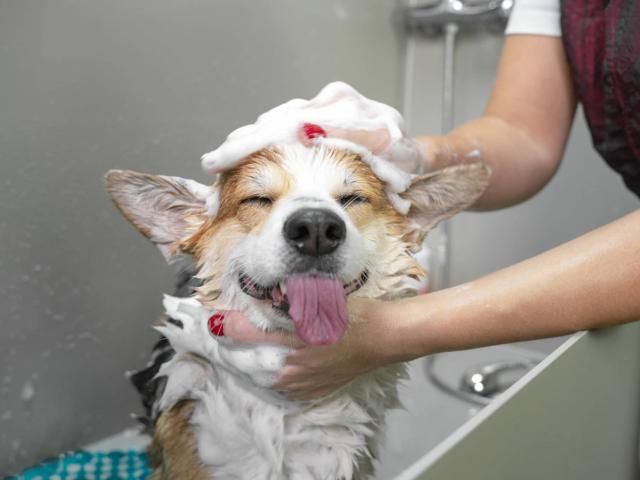Dog training is a discipline that aims to teach your dog the right behaviors to adopt and the rules to respect in order to live in good harmony with his environment alongside his owner.
This stage of the dog's life is a determining factor in the future relationship he will have with his owner, but also with the other animals and human beings he will meet during his life.
The education of your dog should not be left to chance. It is advisable to be well informed on the methods to be used to allow him to evolve serenely in his environment and to interact correctly with other living beings, all of which will have a lasting impact on his well-being and his balance.
What is canine education ?
Dog training is a discipline that brings together a set of methods and techniques aimed at teaching the dog the right behaviors to adopt and the rules to follow in order to interact well with his environment and the living beings that evolve in it, including its owner. This discipline can be practiced by the dog's owner himself, or by professional dog trainers, the latter being specialized in the field and often better able to interpret the dog's behaviors and know how to deal with them. Indeed, the basis of dog training is intimately linked to the understanding of the dog, the respect of his needs and the mastering of the right attitudes to adopt according to the different behaviors it shows.
There are many different methods of dog training, but today, positive training is the one that is most respectful of the dog's well-being and offers the best results. Positive training aims to reinforce good behavior by rewarding it, while avoiding punishing bad behavior. Positive education is not just about giving treats to your dog when he obeys a command. It is about creating good behaviors in the animal by taking care to meet all his needs on a daily basis, in order to avoid creating any distress that could lead to bad behaviors.
Dog training is a true professional discipline that can pose many challenges to new owners, and even more so to those whose dogs are a bit rebellious.
The importance on canine education on your dog's well-being
The education of your dog does not only aim at making him an obedient animal, it has a crucial impact on his well-being by conditioning the relationship he will develop with his owner, as well as with the other animals and humans he will meet throughout his life.
In order to understand the impact of a well-managed dog training program, it is important to know that it is based on a good understanding of dogs and their needs, which must, above all, be met in order for the dog to remain balanced. Indeed, many dogs with behavioral problems, and especially destructive animals that tear apart their owners' furniture and belongings, are animals that show an unhappiness resulting from a lifestyle or an environment that is not suitable for them. For example, hyperactive dogs are generally dogs that do not exercise enough physically and intellectually (this second point being left aside by many owners), and not animals suffering from a real cognitive disorder. In fact, with these animals, it would be useless to start an education process asking them to concentrate and remain calm, when their need for intellectual and physical solicitations is not fulfilled.
Positive education therefore consists in starting by understanding your dog, for example being able to determine that hyperactivity is linked to a need that is not being met, identifying this need in order to meet it and, finally, implementing educational methods adapted to the dog. The whole education process is based on a great attention paid to the animal, and a knowledge of his needs and the meaning of his behaviors, in order to make sure that he is happy and can develop a good mental balance.
A well-educated dog will then be able to interact properly with his environment to fulfill some of his needs. Indeed, by engaging in awkward interactions with humans or other dogs, a poorly trained dog may be severely reprimanded, which does not allow him to get what he came for and may cause him distress. The education of the dog is essential so that he can communicate and weave healthy relations with his entourage. Dogs are social animals, and interacting properly with other living beings is essential to their well-being.
Starting your dog's education in the right manner
The education of your dog must be done through methods and techniques adapted to his personality and behavior. It starts from the moment you choose the dog you will share your life with. It is vital to be able to meet all his needs to make him a pleasant and well-educated companion, which can be difficult when the dog's needs do not match your lifestyle.
If you're a sedentary person, you'll probably have a hard time meeting the needs of an energetic, hardy Husky, and if you're away a lot, you generally won't be able to keep a little Bichon happy.
Whatever your choice, make sure you know the profile of the dog you're going to adopt and that you're prepared to do whatever it takes to meet his or her needs, even if it means changing your habits. Once your companion is at home, it is important to pay attention to all his behaviours in order to understand them well, which often implies questioning yourself, especially if you have the tendency to attribute human feelings to him. A dog is never vindictive and if he destroys your apartment, seems grumpy or withdrawn, it is certainly because he has a physical disorder or emotional distress, and certainly not because he wants to hurt you.
Dog training starts in analysing your dog's behavior and the causes that are at the origin of it, in order to act directly on them. To start your dog's education, it is also important to set up strict rules of life that will be followed at all times. It is not a question of being strict by making life hard for your dog, in fact you can allow him to do just about anything you like (sleeping in your bed, accessing all the rooms in the house, asking for food when you are at the table...), as long as you remain logical and constant.
Making your dog respect the rules of the house is done through positive education, which aims at rewarding good behaviors and ignoring bad ones. For example, if your pet follows you into the kitchen when he is not allowed to enter, you should always lead it to the door without reprimanding him. And when he waits for you at the door without crossing the threshold, reward him generously.
Reward does not necessarily mean treats. Often, what a dog likes even more than small treats are cuddles, congratulations and flattery from his owner, or even games and walks. Rewarding your pet by throwing a favorite toy, taking him for a walk or praising him out loud is often enough, and also helps to meet his need for stimulation, teaching him to interact properly to get what he wants. Treats are often very effective aids, but positive education is not just about that, and it is rather advisable to find other systems of rewards that your dog appreciates so as not to depend on these little biscuits every time you want to be obeyed.
Other benefits of dog training
Aside from all the benefits already mentionned, a well trained dog will be much easier to take for walks, to the vet's where it is often expected to be able to make your dog sit, lie down, not bark, or stay still. It is also a lot easier to take your dog to day care centers, dog groomers, family reunions, and even on holiday with you.
The Dog Stroll Day Care Center staff are trained to work with dogs and can and do help educate dogs, but a basic education is expected when the dog joins, for the well-being of all the dogs in our care.


